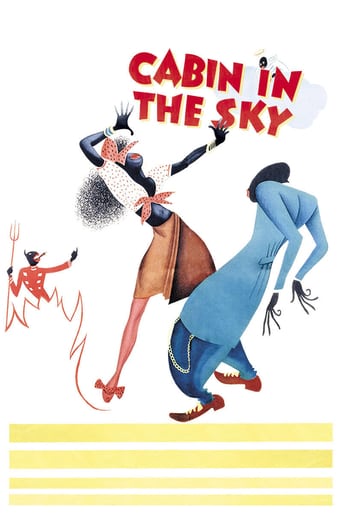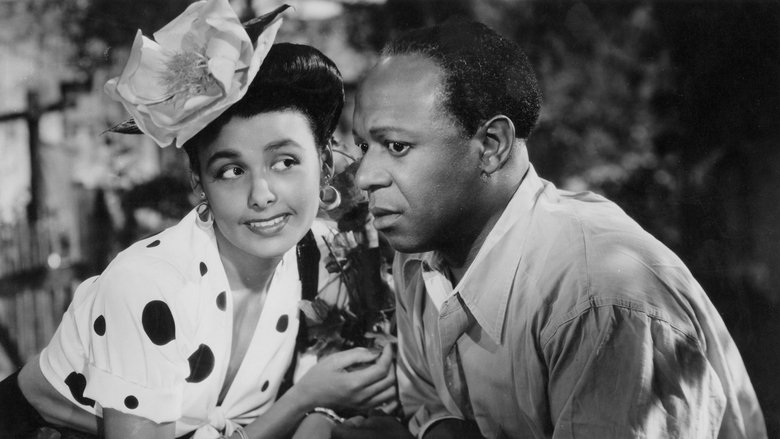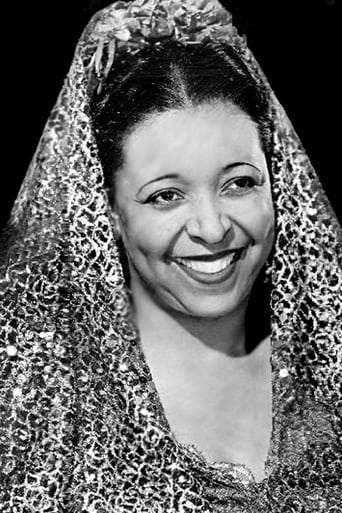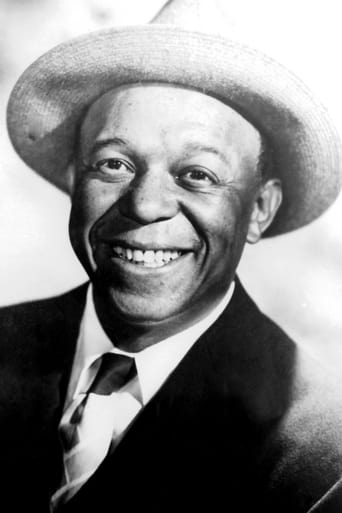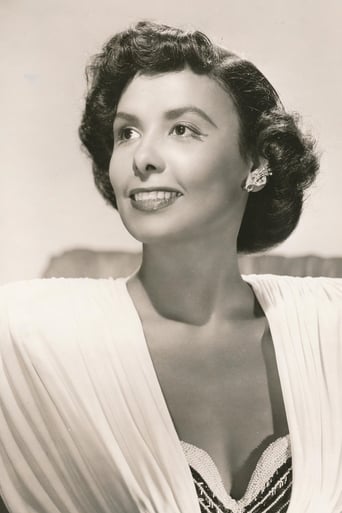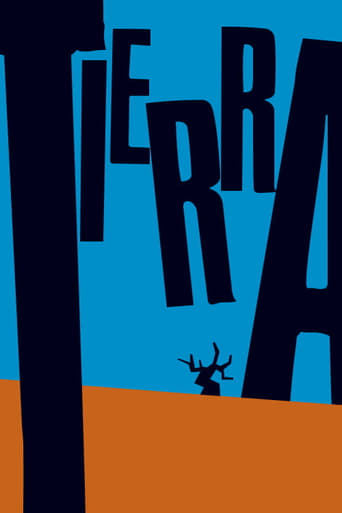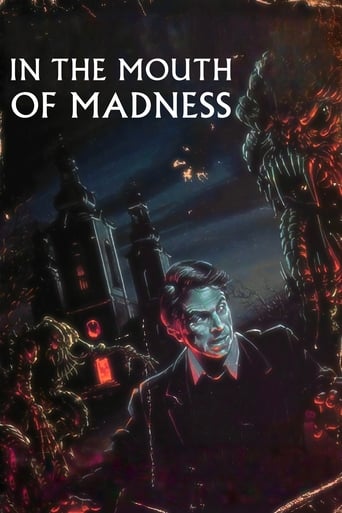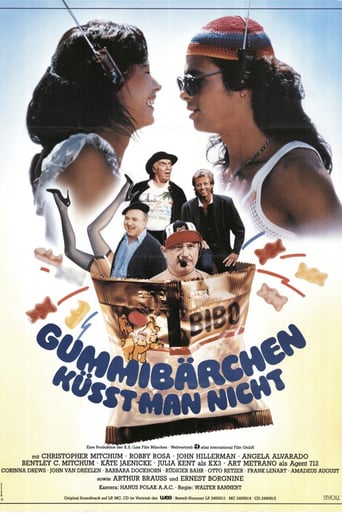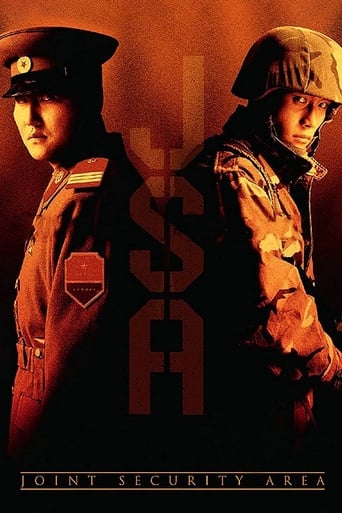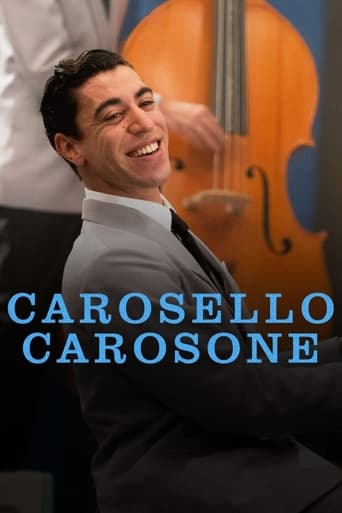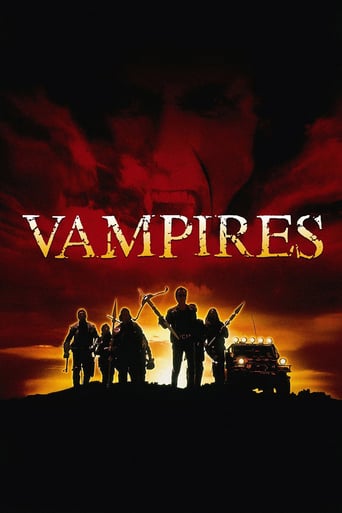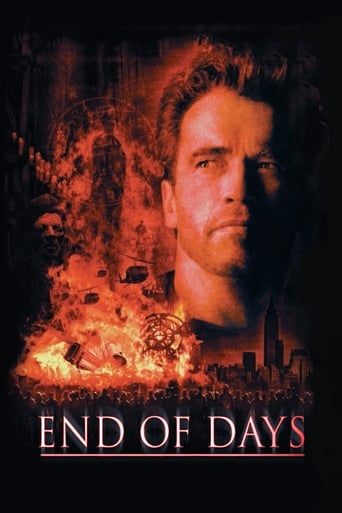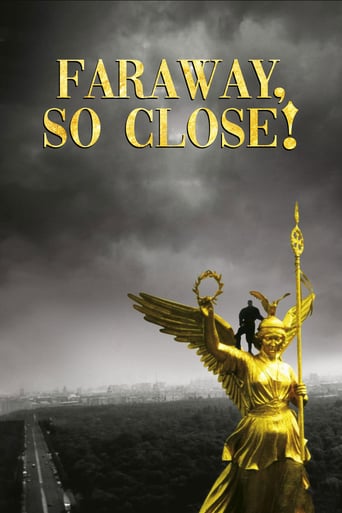Cabin in the Sky (1943)
When compulsive gambler Little Joe Jackson dies in a drunken fight, he awakens in purgatory, where he learns that he will be sent back to Earth for six months to prove that he deserves to be in heaven. He awakens, remembering nothing and struggles to do right by his devout wife, Petunia, while an angel known as the General and the devil's son, Lucifer Jr., fight for his soul.
Watch Trailer
Cast


Similar titles
Reviews
It may be naive (and certainly its dream format is distinctly old-hat), but there's no denying the entertainment qualities of Cabin in the Sky. Of course, the plot does take some time to get moving, but once Rex Ingram and his merry imps come on the scene, things really start to crackle. Joining Rex are such accomplished comedians as Mantan Moreland and Willie Best, while Louis Armstrong in a rare dramatic part displays such a delightful sense of comedy we keep waiting for him to re-appear (which, alas, he never does). Never mind, the scene shifts back to earth with the appealing, bewitching Lena Horne who is wonderfully cast as the provocative Georgia Brown. In fact, we would like to have seen a little more Lena and a little less Ethel Waters who is too indulgently treated with close-ups for the earlier pace of the story. Aside from Kenneth Spencer's too-emphatic impersonation of The General, the other players are nothing short of marvelous. "Rochester" fits amiably into Little Joe, while "Bubbles" is an absolute stand-out as his rival, Domino Johnson.Vincente Minnelli had directed some song numbers in Babes On Broadway and Panama Hattie, but Cabin in the Sky was his first shot at a whole feature. He has risen magnificently to the occasion. In fact, it's one of his most stylish and inventive musicals with long, fluidly unobtrusive takes and all sorts of piquant surprises (Ethel whipping the sheet away at the end of the long take to unexpectedly disclose Dude and Jim Henry leaning on the fence; the Ethel who takes a few hesitant dance steps at the finish of "Taking a Chance on Love" transformed into the dazzlingly kootchy "Honey in the Honeycomb"; Lily stepping into the sick-room, unconsciously avoiding rows of nervously-pacing "angels").Although the negative cost was only $662,141.82 (small change for an MGM musical - Du Barry Was a Lady soared to almost twice as much), Cabin in the Sky is as lavishly produced as beautifully made. The special effects are right out of this world, the sets beguiling and the photography so sharp the images have a pleasingly three-dimensional luster.As for the songs: they are all great, captivatingly sung and/or danced, spiritedly, melodiously orchestrated - and presented in some of the best sound MGM ever achieved.Of course Cabin in the Sky does perpetuate black stereotypes. Although it was considered inoffensive - even conciliatory - in its day, its approach is cowardly simplistic. Nonetheless, it does offer a chance to enjoy the acting talents of a wonderful assembly of gifted players, many of whom would not otherwise be so well-known and well-loved today.
Fireworks of imagination in an intoxicating phantasmagoria of splendid innovations, Lena Horne and Duke Ellington crowning the show both musically and dramatically - the grand scene at John Henry's bar transcends most musicals in sheer flippant enthusiasm. The story is a kind of mental experiment, playing with life and death, and the gamble is high as you don't really know which is which. Rex Ingram is marvellous as Lucifer Junior, laughing his sides off throughout the picture, and the musical numbers are the real treats, especially the church scene in the beginning apart from the grand finale at the bar. The dialogue is ingenious throughout, and just to follow the witty argument makes it worth returning to the film to study it more in detail - there are so many fantastic details to catch up on the way, as the film practically is overloaded with splendid whims, and while it's all too realistic in its drama of life and death, it's at the same time like a fairy tale or parable, from which you can learn a great deal. This was only one out of many films by Vincente Minnelli over-proving that he was a genius.
This is the sort of film that you'd certainly NOT see being made today and I am sure that "Cabin in the Sky" might make a few out there cringe--with its rather stereotypical characters--including several quite shiftless folks. However, if you can hold on to the politically correct voice welling up inside and just accept the film for what it is, then it's well worth seeing.This is a highly unusual film for its time. Despite the leading character being a dice-shooting no account, the fact that White Hollywood would produce a film with an all-Black cast is amazing--even if the characters are all either non-threatening "good Negroes" and the rest are "shiftless"--a rather two-dimensional view (at best). Still, if this film hadn't been made, performances by such greats as Ethel Waters, Lena Horne and Louis Armstrong never would have been seen and appreciated by a wider audience. Sadly, when you watch and see Kenneth Spencer in the film, you think of what a loss it was that Hollywood never gave him much of a chance and that he died so young--he had an absolutely beautiful voice.The film's plot is highly unusual. It's a religious allegory about the soul of one particular shiftless fool (Eddie "Rochester" Anderson). Anderson is given one last chance by God and the angels try to steer him towards good while the devils try to lead him down the path of destruction. And even more unusual is that the film is a singing and dancing musical. Some of the more hilarious performances are by Lucifer, Jr.'s imps. Sure, they are walking stereotypes, but seeing Louis Armstrong, Mantan Moreland and Willie Best acting is very entertaining--the dialog is very funny and original.Overall, the film is very entertaining and a wonderful showcase for some of the best Black entertainers of the day. Well made and certainly not a movie you'll soon forget.
Little Joe (Eddie "Rochester" Anderson) is a warehouseman in a small African-American town, married to Petunia (Ethel Waters), who falls ill and dreams the Lord and the Devil are testing him by allowing him to win the Irish Sweepstakes and sending him a tempting visitor in the form and person (what form, what person!) of Sweet Georgia Brown (Lena Horne). He more or less proves himself, pulls through, and he and Petunia carry on with their poor but happy lives.It's directed by Vincente Minelli and produced by Arthur Fried, without a white person in the cast. Some of the songs have become familiar standards -- "Happiness is Just a Thing Called Joe," "Shine," "Takin' a Chance on Love," and snatch of Duke Ellington's orchestra playing "Things Ain't What They Used to Be." The plot and dialog are folksy, unsophisticated, and without pretense. Eddie Anderson and his gravelly voice are amusing in themselves. Ethel Waters has a brilliant smile that changes her features into something benign, although she was apparently not easy to get along with. She disliked Lena Horne intensely here, and later developed a fully blown hatred between herself and director John Ford in "Pinky." Lena Horne is exquisitely feminine, singing, "There's honey in the honeycomb. There's jelly in the jelly roll," as she caresses her bare arms and shoulders.I suppose it's possible to read racism into a film like this but it got past me entirely. The actors and musicians were probably overjoyed at the chance to appear in a major film. (There was a kind of parallel cinematic universe of all-black films at the time, but they rarely had the budget or skill of mainstream movies.) Further, it's difficult to imagine a cast of any color giving better musical performances. Louis Armstrong has a few minutes on screen as a devil's assistant and is given a chance to toot out one or two choice phrases. And Ellington's orchestra was one of the best in the business.It's all very rural and cornball, of course, just as "Young Mister Lincoln" is, and "State Fair," in which a love song is sung to a hog.Relax and spend an enjoyable hour and a half with the simple, but not simple-minded, folk of this neighborhood. It's a pleasant diversion.

